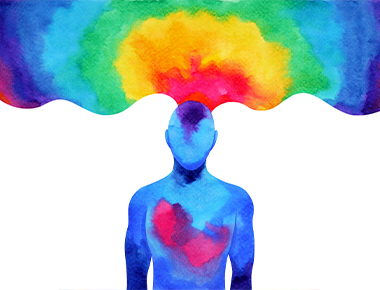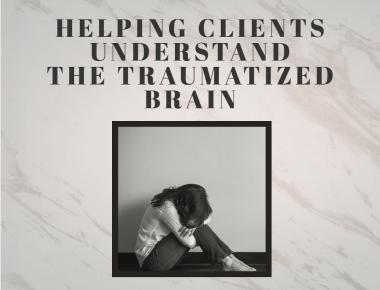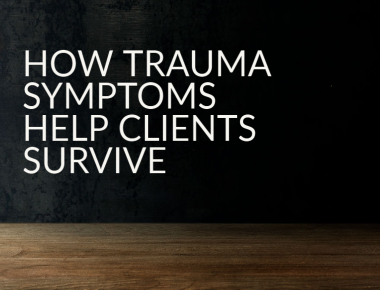Blogs and Free Resources
Here at ∞≈¿÷ ”∆µ, our mission is to provide professionals like you with FREE practical and valuable tools, strategies,
and resources to assist with the great work you do. Find expert tips, helpful worksheets, demonstration videos, CE, news,
and more here. Happy learning!

How Psychedelic-Assisted Therapy Promotes Post-Traumatic Growth
Discover how adding MDMA to your trauma treatment practice could improve and accelerate outcomes
Researchers are rediscovering the awesome power of psychedelic medicines for improving mental health. Peter H. Addy, PhD, LPC, LMHC, reveals how MDMA-assisted psychotherapy promotes post-traumatic growth in clients with treatment-resistant conditions.

Somatic Psychology in the Treatment of Complex PTSD
Attending to Areas of Numbness or Disconnection
Through the process of dual awareness, you can help clients better connect to their body and connect areas of numbness, tension, or discomfort to their trauma history.

Connection & Co-Regulation: Using Self-Awareness to Model Self-Regulation
Learn from a leading voice in the healing of PTSD & complex trauma
As a therapist, developing your own embodied awareness can help you better attune to clients’ somatic patterns of autonomic arousal and allow you to bring co-regulation into therapy.

Waking Up The “Thinking Brain”
Expert Advice + Free CE
When exposed to a trigger, a trauma victim’s prefrontal cortex often “goes offline,” leaving an unchecked fear response free to take over. Learn from Dr. Janina Fisher how to help clients reactivate their prefrontal cortex and better work through their trauma.

Helping Clients Understand the Traumatized Brain
Learn From An Expert And Earn Free CE
The brain is a complex organ that can be difficult to explain in a way for clients to understand. Learn from renowned trauma expert Janina Fisher how to help trauma survivors better understand their brain function…and better facilitate the healing process.

How Trauma Symptoms Help Clients Survive
Quick Tip from International Trauma Expert Plus Free CE
Many trauma survivors also struggle with issues such as depression, irritability, and numbness. Join Janina Fisher in understanding how these symptoms are not only related to trauma, but actually adaptive responses trauma survivors have used in order to survive.

What is Enough?
What does it mean to have ‚Äúenough‚Äù? ∞≈¿÷ ”∆µ author Joanne Spence explores the downward spiral of our ever-present desire to have more, do more, and be more ‚Äì and how to come back to the present and to a place of gratitude.

How Post-Traumatic Symptoms Reflect Our Trauma History
When Our Nervous System Adapts to Threat in the Absence of Danger
Individuals who have been exposed to chronic and repeated trauma often have a nervous system still mobilized for danger, evoking trauma responses of fear, fight, or flight long after the threat has passed.

Desperate Efforts to Regulate a Traumatized Nervous System
Understanding the Vicious Circle of Addictive and Self-Destructive Behavior
Confused and frightened by intense feelings and physical responses—and tormented by their negative thoughts—many trauma survivors feel desperate for relief. Drugs, alcohol, self-harm, and many other compulsive behaviors provide brief periods of respite, but unfortunately, the relief is short-lived. As the body develops tolerance for these addictive or self-destructive impulses, they eventually become worse than the trauma symptoms themselves.

Help Clients Overcome Resistance to Forgiveness so They can Heal after Trauma
Linda Curran, BCPC, LPC, CACD, CCDPD, provides a simple 5-stages model to debunk forgiveness myths and help your clients start their healing journey.
There can be a lot of initial resistance to forgiveness after trauma because of these common false beliefs about what forgiveness means. Help clients move past these myths so they forgive and heal.

